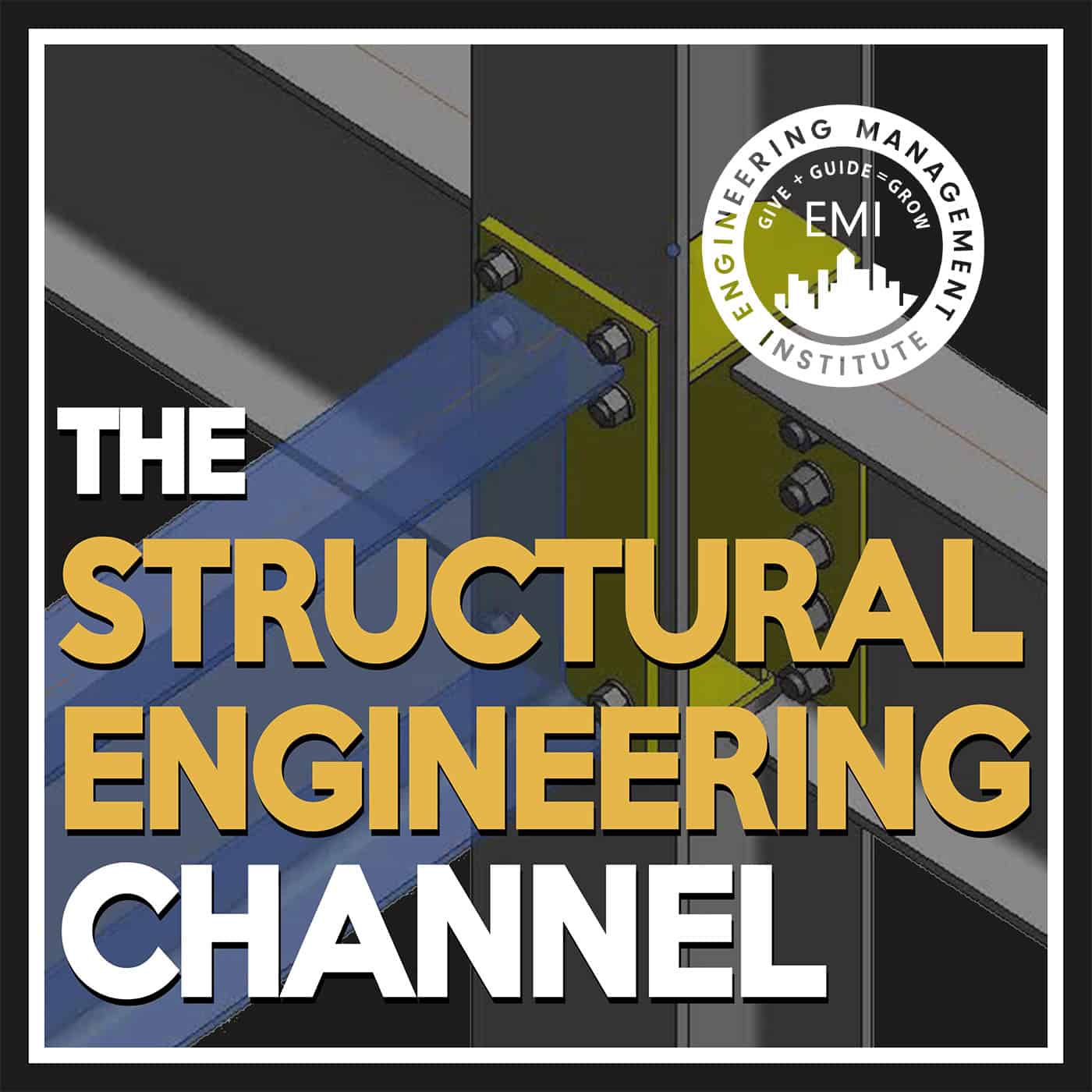TSEC 110: Small vs. Large Structural Engineering Firms: Analyzing the Pros and Cons
Description
In this episode, I talk to William Doll, P.E., a structural engineer at Colliers Engineering & Design, about the unique aspects of working in a small firm and how it differs from working in a large firm. We take a deeper dive into the various projects he worked on in both settings and the advantages and challenges of team collaboration and communication. He also provides some great advice that you can use when choosing between working for small or large structural engineering firms.
***The video version of this episode can be viewed here.***
Engineering Quotes:
Here Are Some of the Questions We Ask William:
How did your college courses prepare you for your role as a structural engineer, and what improvements could have been made to better align with your current job?
Does the focus on complex programming highlight the need to strengthen basic engineering intuition, surprising those who expected a primarily software-focused approach?
Could you talk about your fascinating career journey that began with a small firm and led you to transition into a larger one?
What are your thoughts on mentorship dynamics in smaller versus larger structural engineering firms, considering that smaller firms might offer greater intimacy while larger firms provide more resources but potentially less personal connection?
When looking at projects handled by smaller and larger structural engineering firms, especially regarding potential differences in project size, what variations did you see in the work they involved?
How does transitioning from a smaller firm, where diverse skills including business development are essential, to a larger firm with specialized roles, affect skill development, and do you view this difference as advantageous for acquiring skills?
How crucial is it to use direct communication like phone calls and casual office visits for both business conversations and informal chats, and do you find that these personal interactions enhance relationships?
Can you discuss the variations in work-life balance and company culture when transitioning from a smaller to a larger firm?
What were the most rewarding aspects you experienced when transitioning to a larger firm that was unavailable in a smaller firm?
For engineers aspiring to join either a smaller or larger firm, could you offer advice on the career attributes they should focus on or factors to consider when deciding during their job search?
If someone is considering joining a larger firm due to cultural factors, would you suggest that they reach out to current employees to gain insights into the firm's culture, and what would you consider the most effective approach for them to do so?
Here Are Some of the Key Points Discussed About Small vs. Large Structural Engineering Firms:
During your early college years, you grasp fundamental subjects like calculus and physics. You later delve into specialized areas such as timber, steel, and concrete design, along with project prep and drawing skills. These basics, including tools like shear moment diagrams, remain essential for daily challenges. It will not be until about four to five years of field experience that you will understand how everything works together. Witnessing real construction scenarios will bridge the gap between theory and practice, solidifying your role as a structural engineer.
Experienced engineers should teach younger engineers to focus on the basics. They must encourage using calculators before relying on apps to understand concepts thoroughly. This helps ensure that the results from apps make sense and are truly useful.
Employment within a small firm offers a valuable hands-on learning experience encompassing diverse materials and building types. This environment sharpens adaptability and problem-solv...
More Episodes
In this episode, we talk with Ryan Jeansonne, P.E., civil structural engineer at Titan Delta, who shares powerful insights on mentorship and continuous learning in engineering, inspiring both new and seasoned professionals to take bold, impactful steps in their careers.
***The video version of...
Published 11/14/24
Published 11/14/24
In this episode, we speak with Farshad Mirshafiei, Ph.D., P.Eng., CEO and co-founder of Sensequake, about how advanced technologies are transforming structural assessments and redefining safety and infrastructure resilience in buildings and critical systems.
***The video version of this...
Published 10/31/24


